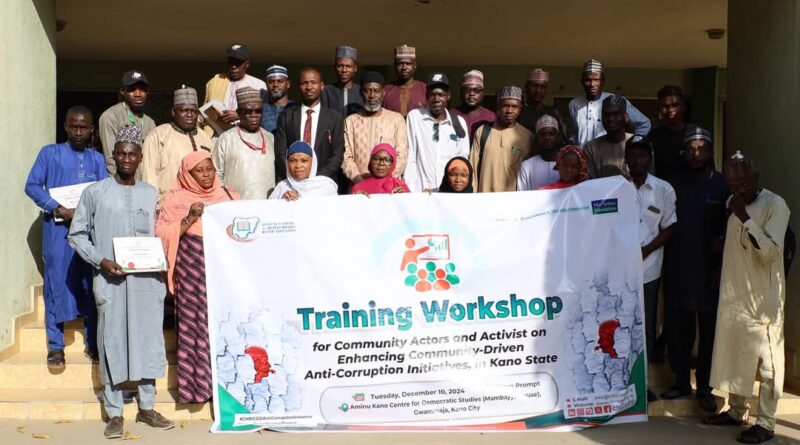CHRICED Urges Kano Activists, Community Leaders to Intensify Anti-Corruption Efforts
By Hannatu Suleiman Abba
The Resource Centre for Human Rights and Civic Education (CHRICED) has called on activists and community actors in Kano State to strengthen their efforts in combating corruption.
This was emphasized during a one-day workshop organized for activists and community leaders, focusing on enhancing community-driven anti-corruption initiatives in the state.
In his opening remarks, CHRICED Executive Director, Dr. Ibrahim M. Zikirullahi, highlighted the organization’s longstanding commitment to grassroots anti-corruption efforts.
He stated, “Over the years, CHRICED has implemented numerous projects aimed at tackling corruption at the grassroots level, with support from the MacArthur Foundation.”
Dr. Zikirullahi noted that while anti-graft agencies have created fear among some politicians and civil servants, corruption remains a significant obstacle to Nigeria’s socio-economic development. He described it as a “national curse” that has escalated financial improprieties from billions to trillions of Naira.
He also called for the establishment of social security and welfare programs to alleviate the burden on civil servants, suggesting that reducing corruption would lower the prevalence of cybercrime among youth.
During his presentation on effective petition writing as a tool for combating corruption in constituency project delivery, Assistant Commissioner of the Independent Corrupt Practices and Other Related Offences Commission (ICPC) for Kano and Jigawa, Malam Abubakar Jibrin, highlighted the role of petitions in uncovering corrupt practices.
“ICPC has recorded significant achievements due to petitions submitted by individuals and groups. Nigerian citizens have the right to submit petitions on alleged corruption, provided the claims are supported by evidence and reliable facts to facilitate further investigation,” he said.
Representing the Economic and Financial Crimes Commission (EFCC), Detective Ekene Ikpeama delivered a presentation on strategies to mitigate corruption within the constituency project value chain.
He emphasized the importance of transparency, accountability, stakeholder engagement, and capacity-building training for citizens.
Ikpeama stated, “While there are numerous constituency projects, combating corruption requires robust strategies such as enhancing transparency and equipping citizens with technical knowledge to demand accountability.”
The workshop, which had 40 participants, urged attendees to apply the knowledge gained to hold the government accountable and combat corruption effectively.





